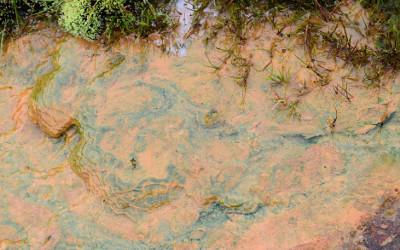New research grant for more sustainable space missions

The OU is to lead a £1.045 million project UK consortium to develop a ground-breaking planetary protection approach that will enable the next generation of space missions.
The primary aims of planetary protection are to ensure that: scientific investigations of possible extra-terrestrial life forms, precursors, and remnants are not put at risk during planetary space missions; and Earth is protected from the potential hazards posed by extra-terrestrial matter carried by spacecraft returning from space.
The concept of planetary protection has received increased attention over recent years due to the emergence of new spacefaring countries and the growing involvement of commercial parties.
The international standards for planetary protection have been developed through consultation with the scientific community and the space agencies by the Committee on Space Research’s Panel on Planetary Protection (COSPAR), which provides guidance for compliance with the Outer Space Treaty of 1967. To date, missions are categorised based on the mission’s target, type, and scientific rationale.
Initial recommendations were guided by a probabilistic approach, which used mathematical models to calculate the probability of contamination. Later, bioburden limits were introduced to the policy for target bodies like Mars. The probabilistic approach could benefit complex missions where there is a need for a more advanced approach to planetary protection but needs further scientific knowledge and the approach needs to be constrained.
The OU is leading the UK consortium, which will run to March 2025, to address the knowledge gaps and the constraints of the mathematical models needed to update and modernise the guidelines. Professor Karen Olsson-Francis from the OU is leading the project with Professor Mark Sephton from Imperial College London and Professor Jonathan Carter from Coventry University. The project is funded by the UK Space Agency International Bilateral fund.
It will also aim to influence COSPAR international policy on planetary protection, which will continue to review this approach as a plausible alternative to bioburden limits to enable the next generation of missions.
Professor Olsson-Francis, Director of AstrobiologyOU at The Open University, said:
“This is an exciting time for space exploration; however, it is critical that space missions are carried out in a sustainable manner to protect both Earth and other planets from biological and organic contamination.”
Professor Olsson-Francis’ research into Earth and space sustainability is one of the OU’s Open Societal Challenges under the Sustainability theme.
You may also be interested in:
- Research at AstrobiologyOU
- A version of this story, written by Laura Bandell, originally appeared on OU News.
Contact our news team
For all out of hours enquiries, please telephone +44 (0)7901 515891
Contact detailsNews & articles

OU joins NBIC’s national biofilm research network
The Open University is proud to announce its inclusion in the National Biofilms Innovation Centre (NBIC) consortium as part of NBIC’s sixth accession round.